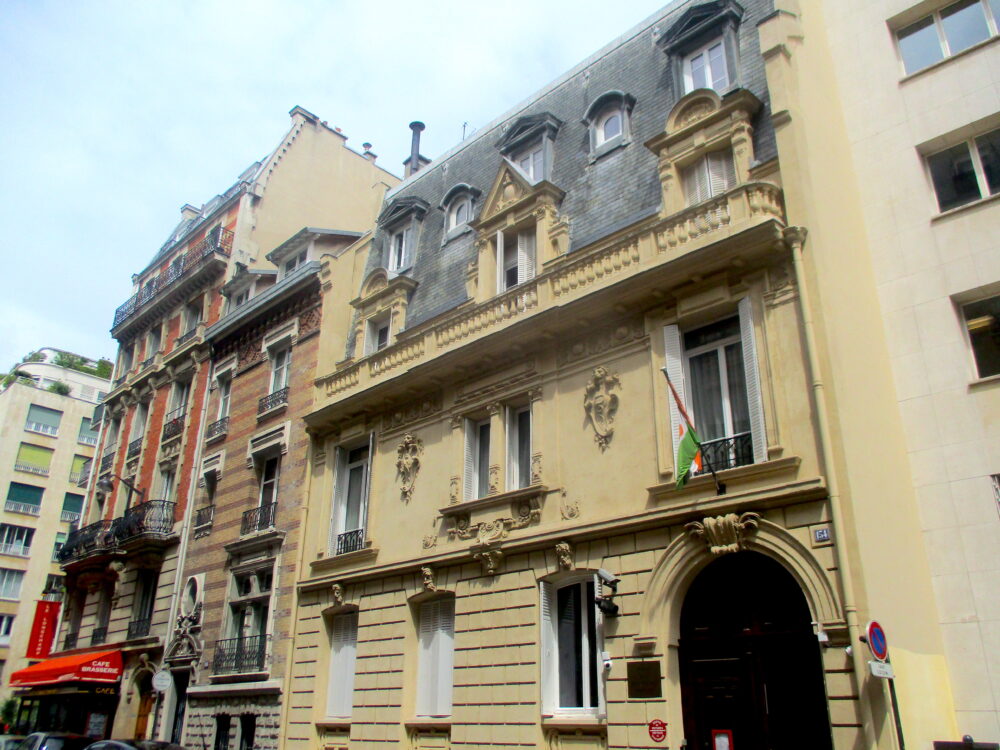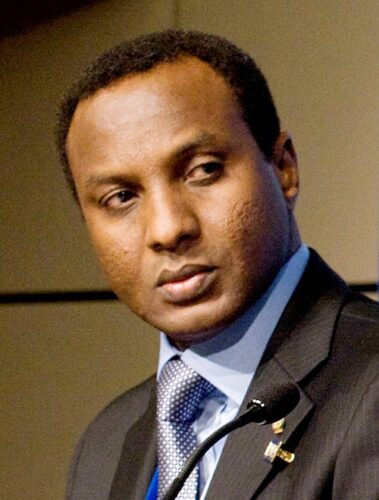Niger faces a “messy” situation rather than a revolutionary situation. Perhaps, certain Bonapartist elements are discernible — for which, of course, there is plenty of blame to go around, writes M.K. Bhadrakumar.

Niger countryside, rural village well, northern Tillabéri. (Lars Rosendahl Appelquist/Wikimedia Commons)
By M.K. Bhadrakumar
Indian Punchline

The 4-week old turmoil in the West African state of Niger is taking a curious turn that no longer allows a binary vision of “neo-colonialism and imperialism” versus “national liberation”. Niger’s coup leaders are making overtures to the United States and keeping the Russian military contractors, Wagner PMC, at arm’s length — at least, at the present stage of transition of power.
The speed with which Washington deployed Kathleen FitzGibbon, an ace Africa hand with intelligence background, as its new ambassador to Niamey signals diplomacy as the preferred course while keeping all options on the table.
Significantly, in an editorial, The Washington Post took note Wednesday that “The two armies [U.S. and Nigerian] have worked closely together over the past decade: Officers are familiar with one another, and Niger’s generals have not been considered anti-American.”
Equally, the U.S. State Department readout on Ambassador FitzGibbon highlighted that her rushed assignment aims to “bolster efforts to help resolve the political crisis at this critical time” and that her “diplomatic focus will be to advocate for a diplomatic solution.”
Interestingly, the readout limits itself to call for the release of the ousted president and his family members and ignored the earlier specific demand regarding his reinstatement. The readout hints that the U.S. diplomacy is casting the net wide and will not limit itself to the Economic Community of West African States (ECOWAS).
On the eve of Ambassador FitzGibbon’s arrival in Niamey, The New York Times carried an interview with Ali Lamine Zeine, the prime minister-designate of Niger. Most certainly, Zeine, the topmost civilian official in the military junta, spoke for the generals and was addressing the western audience.
Zeine’s remarks suggest that the ruling cabal in Niamey are a smart lot and could be in the long game, who seek a direct engagement with the U.S.. Indeed, the ECOWAS itself is caught in two minds after its first face-to-face interaction with the coup leader General Abdourahmane Tchiani in the weekend.
The ECOWAS mediatory mission was led by General Abdulsalami Abubakar, the enormously influential statesman and king maker, who was Nigeria’s last military head of state and a source of moral authority who had kept his word to hand over power to a democratically elected government, making the long-awaited dream of Nigerians a reality.
After returning from Niamey, Abubakar briefed President Bola Tinubu and later spoke to the media where he expressed optimism that the crisis in Niger is not likely to deteriorate beyond diplomacy. Asked if there was any possibility of avoiding a military action by ECOWAS in Niger, Abubakar stated: “Hopefully, diplomacy will see the better of this. Nobody wants to go war, it doesn’t pay anybody, but then again, our leaders have said if all fails — and I don’t think all will fail, we’ll get somewhere, we’ll get out of this mess.”
Succinctly put, Niger faces a “messy” situation rather than a revolutionary situation. Perhaps, certain Bonapartist elements are discernible — for which, of course, there is plenty of blame to go around, as Africa’s elites and their failures are a major factor, not only because public opinion associates them with France, but due to the twin malaise of a poverty of political ideologies and populism. The rise of new generations of young people are frustrated by a status quo that, in their eyes, is of France’s making.
Importantly, therefore, the threat of Russia filling the vacuum is overstated and should not justify Western intervention. What needs to be understood is that part of Russia’s appeal is that many Africans see Moscow as sort of “anti-France”. Conversely, the less France lives as an exploitative ex-colonial power in the popular imagination, the less Russia’s symbolic appeal will become.
One can see that Russians themselves understand this behind Moscow’s anti-colonial, anti-imperialist rhetoric. A commentary in the Russian daily Nezavisimaya Gazeta noted three days ago that, “For the Russian Federation, it is noteworthy that the putschists for the first time dissociated themselves from Russia and the Wagner PMCs, assuring the West that they were ready to conduct political and economic cooperation with it.”
However, General Tchiani, who heads the putschists, is not going to give up power. On the other hand, he no longer repeats that President Mohamed Bazum will be put on trial. The ECOWAS delegation who met the ousted Bazoum, estimated that he isn’t in any imminent danger. The putschists have heeded Washington’s stern warning.
General Tchiani is also distancing himself from raucous public support of the putschists, which seems to embarrass him. The salience, according to the Russian daily, is that “judging by the recent actions and statements of the Niger military, they really do not want to sever all opportunities for dialogue with France, the United States and the organisations they support.”
In the New York Times interview, Zeine outlined the ideas of the new authorities’ foreign policy priorities. He categorically rejected the assumptions and claims that Moscow was behind the coup. “I don’t see any intentions from the military government of Niger to cooperate with Russia or with the Wagner group,” Zeine said.
He even cautioned the West to be discreet not to push Niger into the arms of Wagner. (According to reports, the redoubtable head of Wagner Yevgeny Prigozhin has flown into neighbouring Mali in Sahel, fuelling speculations.)
Most important, Zeine clearly told The New York Times that the pro-French foreign policy vector will remain unchanged for Niger even under the new authorities. “We studied at French universities, our officers studied in France,” he said.
On the whole, Nezavisimaya Gazeta wryly noted, “Judging by the interview, the only thing that Tchiani and his associates are seeking is a revision of the terms of cooperation with the former metropolis.” As Zeine put it, “we just want to be respected.” Conceivably, this refers to the revision of the conditions for the extraction of Niger’s uranium and gold reserves. Both are now suspended.
That said, there is great uncertainty regarding the actual intentions of the protagonists. Is the junta, which has class or corporate interests, seeking some concessions to save face or is it merely buying time? Is the West scaling down its earlier strident demands of immediate restoration of democratic rule to a modest realistic expectation to let Bazoum go into exile and pin down the putschists to a timeline for transfer of power to an elected government? There are no easy answers.
One significant straw in the wind is that the African Union, at a session in its headquarters in Addis Ababa on Tuesday, while suspending Niger’s membership, decided that it needed time to study the implications of any armed intervention in that country.
The domestic opinion within Nigeria is also vehemently opposed to any ECOWAS military intervention. After all, similar past interventions in Liberia and Sierra Leone didn’t have happy endings. Nigeria which was led up the garden path by Western powers and left holding the can of worms. Nigeria has its hands full with a serious internal security situation that allows no distractions. The northern Nigerian provinces have tribal, ethnic affinities with Niger and have come out against war.
M.K. Bhadrakumar is a former diplomat. He was India’s ambassador to Uzbekistan and Turkey. Views are personal.
This article originally appeared on Indian Punchline.
The views expressed are solely those of the author and may or may not reflect those of Consortium News.



How very myopic and total disconnect from the reality on ground in Niger and West Africa as a whole, is this article. This, just depicts the arrogance-clouded mindset of the West towards Africa and Africans. Times have changed. Something is fast building up in the consciousness of young Africans. An awakening fire is burning demanding accountability and fair share in the immense natural and human resources contribution of Africa in the global economic sphere. The influence of the US and the West is no longer relevant on the ground here. The loud echo for economic liberation is drawning the respect Africans have for the US and Europe. Watch and see it unfold. This military coups are just signs of the tsunami coming!
Bonapartism in a case of Fench educated junta would be hardly surprising. In original edition, Bonaparte suspended democracy that already degenerated in two periods of terror, Red Jacobins followed by White Thermidorians, but preserved equal right and social advancement, but with new “meritocratic” aristocracy. In short, it was some regress from revolutionary ideas, but apart from excessive militarism, perhaps “not so bad”.
In the case of Niger, the main problem is corruption that vacuums bulk of the proceeds from the export of resources out of the country, increasing the poverty or, at best, arresting the development. Niger may have too few engineers etc. to extract minerals without involving foreign companies, so on that, the question is having a better deal than before. Second problem is that even with a better deal, rapacious elite can vacuum it out of the country. Elite manipulating electoral system may be worse than junta, even a bonapartist one. Worth to note a smooth transition from “democracy” to a “bonapartist junta” next door in Chad. The change is from dictatorial father allowing not-so-clean elections and not-so-free multiparty system to more frankly military rule of his son.
At this time, West+puppets and the junta exchanged threats, and it is credible that without a compromise, Niger may pay a heavy price, but ECOWAS may be worse off too, and true risks are hard to measure. The key is if the military will deliver a better government, with benefits for the population and a better route to economic growth. Which depends on Nigeria and Benin until the railroad being built in Guinea will extend through Burkina Faso to Niger, which may happen with 10 years or not.
Be wise people of Niger. If you lie down with the United Snakes of America then you will surely be bitten. And its bite is fatal.
Great and useful article. Creating content regularly is very tough.
THE GAME CHANGED WHEN THE AU ISSUED A STATEMENT SUSPENDING Niger FROM ALL RIGHTS IN THE BODY.
Besides What right does a bunch of rogue BANDITS have. Especially when the AU just woke up from its slumber to read the RIOT act.
GOOD. THE NOOSE TIGHTNING AROUND THE NECK OF THE ROGUE JACK BOOTHS WHO DETHROWN A CONSTITUTIONAL DEMOCRACY IN THE Niger REPUBLIC.
A sound of warning to all other trigger happy THIEVES in uniform with the thinking of overthrowing constitutional government on planet Africa.
IS THE AU WAKNG UP AND RISING TO ITS BILLINGS AND ESSENCE?
Did it take both the initiative and leadership of the newly installed president and Commander-In-Chief of the federal republic of Nigeria, Asiwaju Bola Ahmed Tinubu. For the AU to perform and rise up to the occasion?
Truly, a new dawn with new Sheriff in place.
Diplomacy is permanent interests the US, Russians,China,France,EU are hawks flying over Niger Republic for point and kill mineral treasures.Let AU and ECOWAS support the military juntas as nicknamed by the foreign powers for a peaceful civil transition to democracy but,and Kassoum must go on exile
Nope! France Out of Africa! Hands Off Niger!
The idea that US trained military putschists would magically turn into anything other than all the rest of them sounded like wishful thinking from the start. Just more of the same, with a twist or two, is how you are characterizing this. If the last 65 years offers any clues, you are undoubtedly correct. Same old, same old. As Emily Litella always wrapped things up when the reality was understood, “Oh. That’s very different. Never mind.” This version is humorless, but otherwise identical.
Once US military arms and training is an issue the die is cast. That is probably because the arms are made difficult to use and need lots of spare parts too. That is sort of the take away of full spectrum dominance as full spectrum reliance.
But the mood of the people in Niger does not indicate much appreciation of a bonaparte type softening of what happened. Today a group known as M62 demanded French troops leave and Tiani recently said any military intervention will not be “a walk in the park.” Zeine’s attachment to the French is not the mood of the thousands signing up to assist the coup at the Niamey stadium as an early response following what happened July 26.
Additional good source:
xttps://www.africanews.com
It’s good to see M.K. Bhadrakumar’s byline showing up here with this frequency. He is in a class of former diplomats gracing your pages commensurate with Chas Freeman and Tony Kevin, and of course, the redoubtable Craig Murray. There is so much to be learned about our history that never got to the news of the day during their tenure, so the backstory of events and personalities of the participants is especially valuable for one’s perspective. Because those events led to the world we have today.